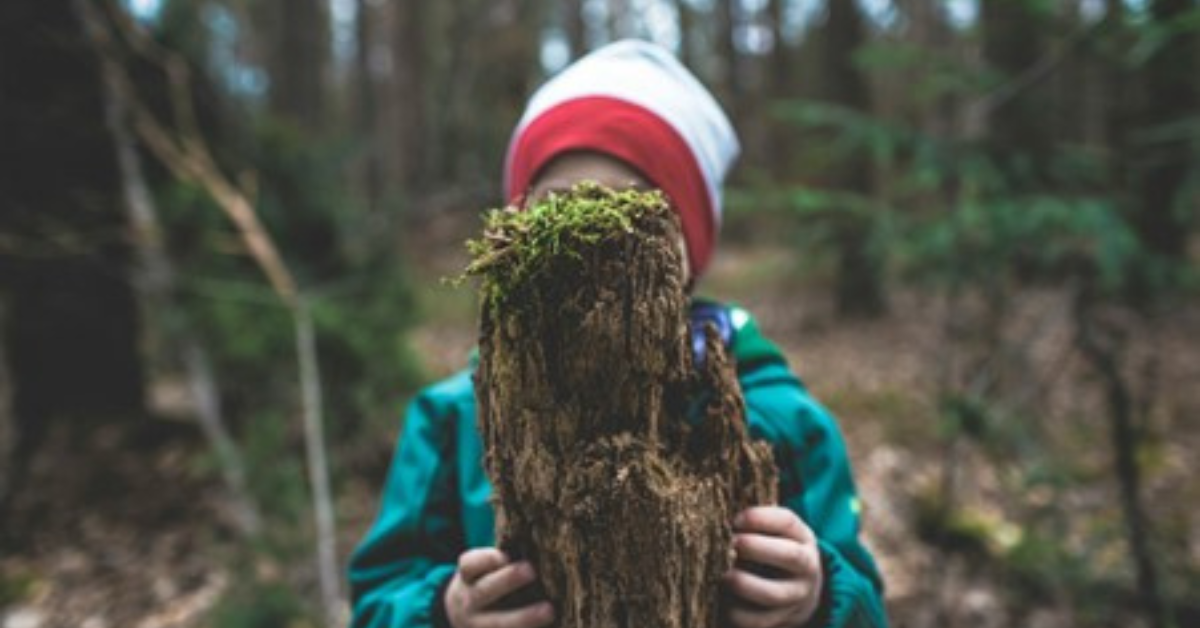Taking a neurodiversity paradigm approach to nature-based learning

Author: Dr Samantha Friedman
Lecturer in Applied Psychology, Moray House School of Education and Sport
Recent years have seen an increase in the popularity of various forms of nature-based learning (which refers broadly to engagement with nature for the purpose of play, learning, and development), including forest school. This increase has coincided with growing awareness of the difficulties that autistic young people face when it comes to accessing school. For some autistic young people, forest schools and other nature-based settings are more accessible and supportive environments. Practitioners working with autistic young people in these spaces should ensure that they are taking an approach which harnesses the neurodiversity paradigm to maximise the benefits for all.
The recent growth in interest in nature-based learning is underpinned by a compelling evidence base which suggests links between time in nature in childhood, improved wellbeing, and lifelong feelings of connectedness with nature (Chawla, 2020). Connection to nature is also associated with an increased likelihood to act in service of the environment and to believe in the importance of protecting the environment (Liu et al., 2022), so childhood nature experiences have important implications for sustainability as well. Nature-based learning, a common way to engage children with nature, has been linked to improved focus and academic attainment (Kuo et al., 2018). Given the breadth of the benefits, nature-based learning is increasingly being implemented in nurseries and schools worldwide.
A burgeoning evidence base has also begun to demonstrate that autistic young people might particularly benefit from nature-based learning (e.g., Bradley & Male, 2017; Friedman et al., 2022). While autistic children have been engaging in nature-based learning for as long as the practice has been around, much of the existing research evaluating their experiences has focused on the role that nature-based learning can play in reducing autistic traits. For instance, Zachor et al. (2017) explored the ‘effectiveness’ of an outdoor adventure programme in reducing autistic symptomatology. The authors concluded that those children who participated in the outdoor adventure programme experienced a greater reduction in autistic symptomatology than the group of autistic children who did not take part; however, I believe this framing of nature-based learning’s potential for autistic children is harmful.
Taking a perspective informed by the neurodiversity paradigm, autism can be understood as one of the many forms of neurocognitive functioning that we can expect will naturally occur across the population (Walker, 2021). Viewed in this way, characteristics of autism include differences in social communication preferences, sensory needs, a tendency to engage with focused passions and interests, and a preference for routine or predictability. When autism is viewed as a different way of being, rather than a deficit in specific skills, the characteristics of autism are no longer seen as ‘symptoms’ that need to be eliminated. However, autistic people can still require support or be disabled, particularly when the environment is not supportive or accessible. One such environment that is often inaccessible is the school environment.
One of the celebrated tenets of the nature-based learning ethos is the potential to allow for child-led practice, providing young people with the autonomy to meet their needs and follow their individual interests while learning important risk assessment skills (e.g., Arvanitis et al., 2023). Autistic young people are often denied autonomy in school and, for a range of reasons, often have negative school experiences. Thus, physically moving outside of the four classroom walls, and all the various constraints and trauma that those walls represent, can be an important step towards providing autistic students with more positive experiences at school.
However, it is vital to remember that simply moving learning outdoors does not mean that the issues that often make indoor classrooms inhospitable for autistic young people slip away. Without making the conscious and active choice to adopt a different ethos outdoors, practitioners teaching outside can do the very same harm that is done indoors. According to expert forest school practitioners, some of the important elements of a neurodiversity-affirming ethos outdoors include deliberately and slowly building trust with autistic young people, providing a balanced mix of structure and autonomy, and being a responsive and reflexive practitioner (Friedman et al., 2023).
The neurodiversity paradigm fits seamlessly alongside the ethos of nature-based learning, but this requires a concerted effort on the part of practitioners to ensure that their practice is truly inclusive and accepting of all forms of being.
References
Arvanitis, A., Barrable, A., & Touloumakos, A. (2023). The relationship between autonomy support and structure in early childhood nature-based settings: Practices and challenges. Learning Environments Research, 27, 101–119.
Bradley, K., & Male, D. (2017). ‘Forest School is muddy and I like it’: Perspectives of young children with autism spectrum disorders, their parents and educational professionals. Educational and Child Psychology, 34, 80–96.
Chawla, L. (2020). Childhood nature connection and constructive hope: A review of research on connecting with nature and coping with environmental loss. People and Nature, 2(3), 619-642.
Friedman, S., Gibson, J., Jones, C., & Hughes, C. (2022). ‘A new adventure’: a case study of autistic children at Forest School. Journal of Adventure Education and Outdoor Learning, 24(2), 202–218.
Friedman, S., James, M., Brocklebank, J., Cox, S., & Morrison, S. (2023). Facilitating nature-based learning with autistic students. Childhood Education, 99(4), 14–23.
Kuo, M., Browning, M. H. E. M., & Penner, M. L. (2018). Do lessons in nature boost subsequent classroom engagement? Refueling students in flight. Frontiers in Psychology, 8(2253).
Liu, Y., Cleary, A., Fielding, K. S., Murray, Z., & Roiko, A. (2022). Nature connection, pro-environmental behaviours and wellbeing: understanding the mediating role of nature contact. Landscape and Urban Planning, 228(104550).
Walker, N. (2021). Neuroqueer heresies. Autonomous Press.
Zachor, D. A., Vardi, S., Baron-Eitan, S., Brodai-Meir, I., Ginossar, N., & Ben-Itzchak, E. (2017). The effectiveness of an outdoor adventure programme for young children with autism spectrum disorder: a controlled study. Developmental Medicine and Child Neurology, 59(5), 550–556.




Comments are closed
Comments to this thread have been closed by the post author or by an administrator.